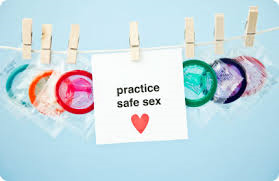 By Tania Diaz
By Tania Diaz
Students who are sexually active should get tested for sexually transmitted diseases.
According to the Centers for Disease Control and Prevention, young adults ages 15 to 24 only make up a quarter of the sexually-active population yet account for nearly half of the new 20 million STDs reported annually in the United States.
In 2014 the CDC stated the same population noted above reported more than 948,000 cases of chlamydia, the most common sexually-transmitted bacterial infection, accounting for 66 percent of all reported cases in the country.
“It’s a time of exploring and experimentation of partners,” said Dr. Colleen Hall-Patton, adjunct instructor of women’s studies at College of Southern Nevada, as she shares her opinion on students’ sexual activity. She said students don’t always make logical decisions and use safe-sex practices.
According to the CDC, human papillomavirus continues to be the leading sexually transmitted infection in the United States and the most common among adolescence and young adults. In 2015 the CDC estimated that there are more than 79 million people infected with HPV: young adults accounting for half.
“Young people think they’re invincible and don’t take safe sex seriously until something happens to them,” said Stephanie Lyte, CSN student.
Lyte’s comment is supported by statistics; however some students do practice safe sex.
According to the U.S. National Library of Medicine’s Nation Institutes of Health, 26.4 percent of college students always use condoms and 64 percent use them occasionally.
Although there is no single answer as to why college-aged students are more prone to contract STDs than other age groups, there are some opinions on the topic.
“I think that the main reason of such a high rate of STDs in college kids is due to ignorance,” said Cody McKeon, CSN student. “You probably assume that if you’re clean, your fellow schoolmates are clean as well, so the thought of using a condom doesn’t even register in your mind.”
Although some know a lot about safe-sex practices, others don’t.
“If parents aren’t talking to their kids about sex and if the quality of our sexual education in schools is questionable, it is understandable that young people might make choices based on lack of information or bad information,” said Dr. Joseph Hassert, adviser of Gender and Sexuality Alliance, a club on campus that raises awareness of safe-sex practices.
“When we talk about sexual learning in class, it’s apparent that students don’t get information from home or school,” Dr. Hall-Patton said. “This general lack of openness translates into seeing sexual activity as something secretive, perhaps even dirty. If we started with learning about all body parts in preschool and early elementary school, we could build learning on that base and we could talk about sex like we talk about the central nervous system and blood cells.”
It is advisable for sexually-active students to get tested. Many clinics offer free or low-cost options such as Southern Nevada Health District or Planned Parenthood.
The CDC recommends that individuals participating in unprotected sex get tested for HIV at least once a year and get tested for other diseases every three to six months.
“I think young adults and people in general are just uncomfortable getting tested for STDs,” Lyte said. “It’s a very personal situation. If someone finds out they do have an STD they might be ashamed and a little embarrassed.”
“I understand that the idea of being tested is nerve-wracking, but only two people will even know about it, you and your doctor,” McKeon said.
ASCSN, on campus student government, offers free condoms to students.
Gender and Sexuality Alliance also offers free kits to students that include: condoms, contraceptive dental dams, lubricants and information about local agencies that perform STD testing.
“Our goal in giving out safe-sex kits is to increase the availability and use of safe-sex practices among those who are sexually active,” Dr. Hassert said. “We want to encourage individuals to get tested and to know their status.”



